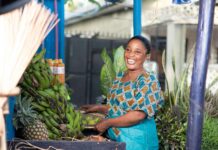A coalition of over 78 civil society organizations has taken a significant step toward strengthening the resilience of Rwanda’s food systems and climate policies by convening a high-level national stakeholder workshop focused on integrating agroecology and animal welfare into the country’s third Nationally Determined Contribution (NDC 3.0).
The forum held today in Kigali, brought together representatives from the Government of Rwanda, civil society organizations, academia, and international partners. Organized by the and Development Network (RCCDN), in partnership with World Animal Protection and the Alliance for Food Sovereignty in Africa (AFSA), the forum aimed to generate policy proposals that align sustainable agriculture and humane livestock practices with Rwanda’s climate adaptation goals under the Paris Agreement.
“We are at a defining moment where climate policy must speak to the realities of smallholder farmers and the animals that sustain their livelihoods. Agroecology and animal welfare are no longer fringe ideas, they are central to building a climate-resilient, inclusive, and ethical development model. While Africa contributes less than 4% of global greenhouse gases and Rwanda’s share is approximately 0.01%, making us minimal contributors to the cause of climate change, we are acutely experiencing its serious effects, emphasizing the critical need for adaptation strategies like agroecology and animal protection to ensure sustainable and safe food production,” said Faustin Vuningoma, the RCCDN Coordinator.
The workshop spotlighted how agroecology an approach to farming that works with nature rather than against it can reduce chemical inputs, improve soil health, enhance food sovereignty, and boost community resilience. Animal welfare, particularly in sustainable livestock systems, was presented as a critical yet often overlooked pillar for reducing environmental degradation and preventing zoonotic disease risks.
“There is an urgent need to mainstream animal welfare in Rwanda’s climate agenda,” said Sally Kahiu, External Affairs Lead at World Animal Protection. “By prioritizing humane and sustainable livestock systems, Rwanda can position itself as a leader in ethical and effective climate action, benefiting people, animals, and the planet.”
As the world faces increasingly frequent and severe climate change impacts, countries must align their climate strategies to enhance resilience while reducing emissions. Rwanda’s Nationally Determined Contributions (NDCs) are pivotal in setting the national climate agenda. With the focus shifting towards the formulation of NDCs 3.0, it is crucial to reassess and strengthen the adaptation and mitigation strategies.
Participants engaged in policy discussions, technical presentations, and group dialogues, culminating in a shared call for the government to formally recognize agroecology and animal welfare as key components in the country’s NDC revision process.
“As the government of Rwanda, animal protection is very critical to what we want to achieve in our strategy to produce sustainable food. We are very happy to see that our stakeholders and civil societies are raising this issue regarding animal welfare and the role that it plays into mitigating or adapting to climate change. It is very important that these concepts are taken into consideration for the new NDC 3.0 that we are developing,” said Dr. Fabrice Ndayisenga, from Rwanda Agricultural Board.
The workshop is expected to influence ongoing national consultations on NDC 3.0, with further regional and international advocacy planned in the lead-up to the thirtieth Conference of Parties (COP30).








